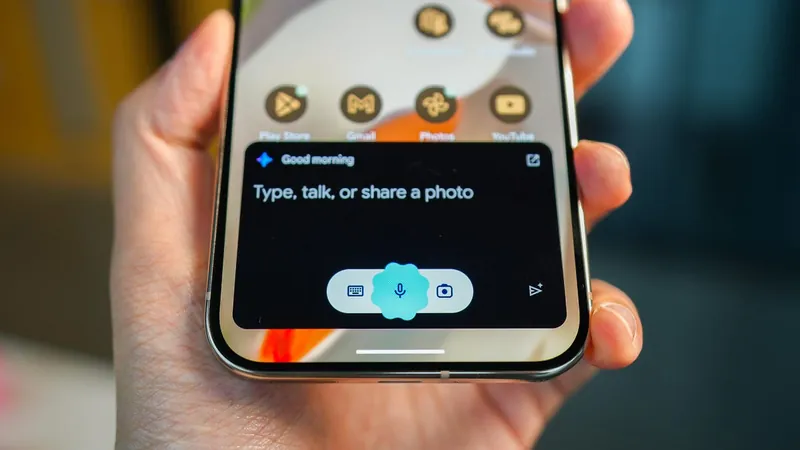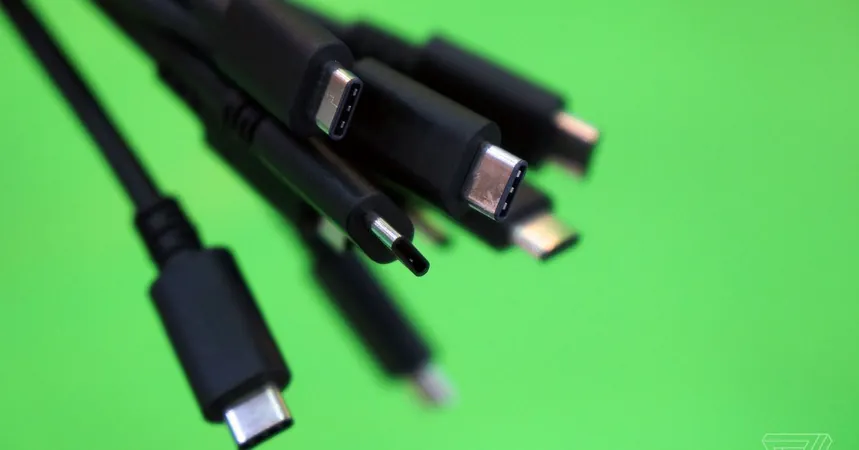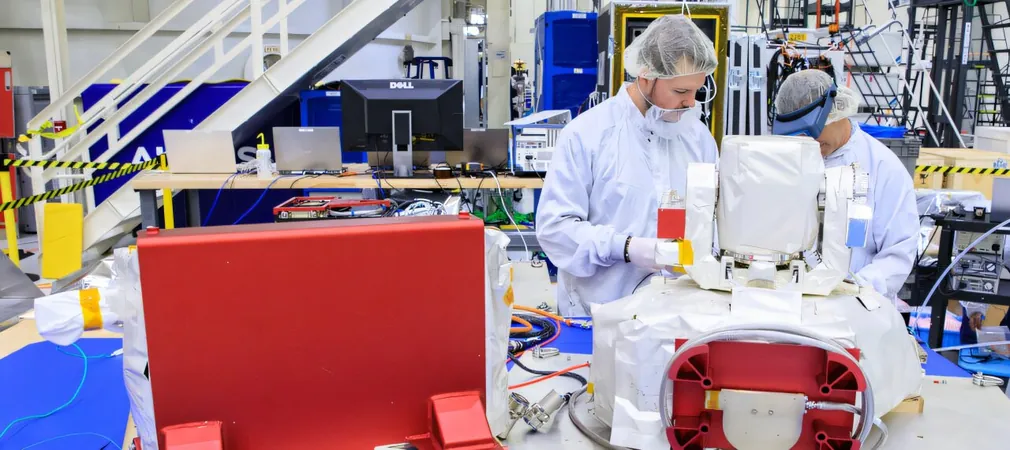
The Reality Check on Smartphone AI: Why Users Are Still Wary
2024-11-06
Author: Arjun
Introduction
As a proud owner of the Pixel 9 Pro, I can confidently say it's the best phone Google has released so far. With its sleek design, power, and the smooth user experience provided by Android 15, it's easy to see why this device stands out in a competitive market. But when it comes to the barrage of AI features touted in Google's marketing, I find myself skeptical— and I know I’m not alone in this sentiment.
Personal Experience with AI
While Google claims that AI is integral to the Pixel 9 experience, my personal usage has shown me a different reality. In the several weeks since I’ve had the phone, my direct interactions with AI have been minimal. Sure, I have the Gemini Live app installed, but aside from a couple of test chats, I haven’t integrated it into my daily routine. Even though the camera boasts impressive AI tools for optimizing photos, I prefer to rely on my own skills instead of shortcuts. My usage revolves around traditional tasks: making calls, listening to music, connecting with friends, and managing my schedule—just the essentials.
The Disconnect with Users
The ongoing push from tech giants like Google and Apple suggests that AI is the future of mobile technology, encouraging users to depend heavily on artificial intelligence for everything—sending messages, taking pictures, writing emails, and beyond. But in conversations with tech-savvy 'power users,' not one of them listed AI as a must-have feature. Instead, we discussed more pressing upgrades and enhancements that genuinely improve the smartphone experience. My personal wishlist includes: - Enhanced app sandboxing for improved security - Superior audio quality - Better performance on lower-tier devices - Camera stabilization advancements - Streamlined desktop integration - Improved memory management - Consistent updates across different phone manufacturers - An app drawer for iPhones - FaceTime compatibility for Android devices - Enhanced SMS integration between different platforms - And a truly functional desktop mode akin to a computer.
Casual Users' Perspectives
When I surveyed casual users as well, they echoed the same straightforward desire: they just want their phones to work. This unscientific sample suggests that for most, affordability, reliability, and user-friendly interfaces trump the allure of AI features.
The Crux of the Matter
The crux of the matter is that integrating AI into smartphones isn’t necessary; what users actually need are devices that make calls, facilitate communication, help with organization, and provide entertainment without a hitch.
The Hidden Costs of AI Integration
Adding AI to devices does come with a price. Reports from Digital Trends indicate that AI features might soon transition from free to a paid subscription model after a trial period. For example, the Gemini Advanced service will require a fee after one year—a potential financial pitfall for users who forget to cancel.
Moreover, there's an environmental and technical cost to consider. Running AI requires significant computational power, which is often offloaded to energy-hungry data centers. For instance, Microsoft has even explored using energy from decommissioned nuclear facilities to fuel its AI operations—raising questions about sustainability and cost.
Google is trying to incorporate some AI functions locally on the Pixel 9, but this shift necessitates increasingly powerful chips to handle the demands of AI tasks. If manufacturers don’t balance power consumption with performance, we could see devices struggling under the pressure of integrated AI functionalities, leading to a saturated user experience where basic tasks falter.
Rushing Towards AI
It’s evident why phone manufacturers are rushing towards AI— it sells. But for someone considering transitioning to another brand, like Carl Pei's upcoming Nothing Phone 3 heavily leaning into AI, this obsession with artificial intelligence could be a deal-breaker.
Market Reality
Ultimately, the smartphone industry doesn’t need saving; the market is booming—projected to hit a worth of over $493 billion by the end of 2024. The desire for dependable phones surpasses the need for flashy AI features.
Conclusion
I am not against the existence of AI, and I acknowledge its value in certain spheres. However, in the context of smartphones, I argue that focusing on reliable, secure, and accessible devices should take precedence over this AI-driven hype.



 Brasil (PT)
Brasil (PT)
 Canada (EN)
Canada (EN)
 Chile (ES)
Chile (ES)
 España (ES)
España (ES)
 France (FR)
France (FR)
 Hong Kong (EN)
Hong Kong (EN)
 Italia (IT)
Italia (IT)
 日本 (JA)
日本 (JA)
 Magyarország (HU)
Magyarország (HU)
 Norge (NO)
Norge (NO)
 Polska (PL)
Polska (PL)
 Schweiz (DE)
Schweiz (DE)
 Singapore (EN)
Singapore (EN)
 Sverige (SV)
Sverige (SV)
 Suomi (FI)
Suomi (FI)
 Türkiye (TR)
Türkiye (TR)